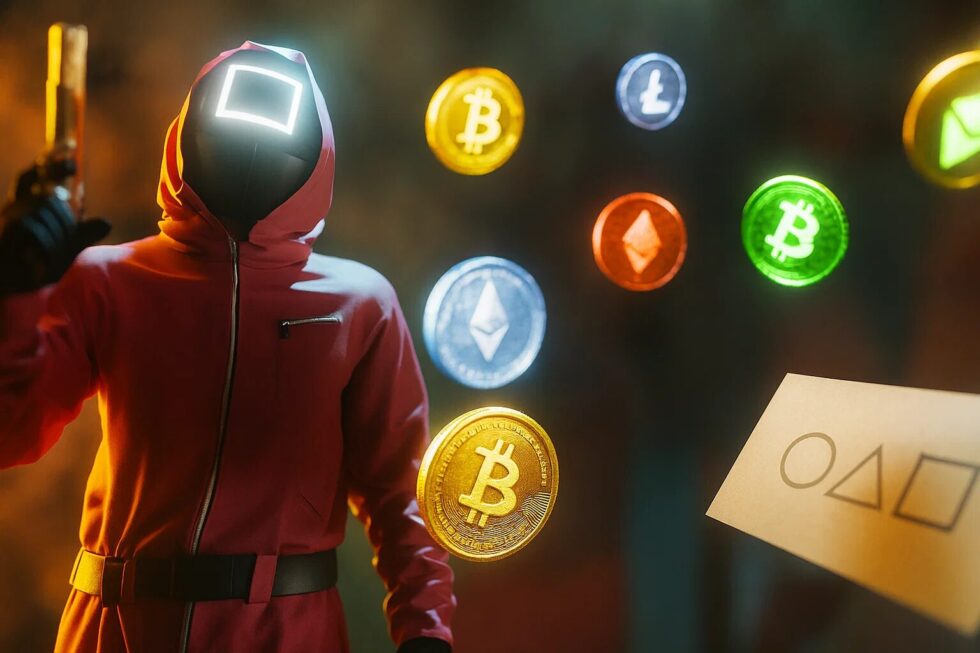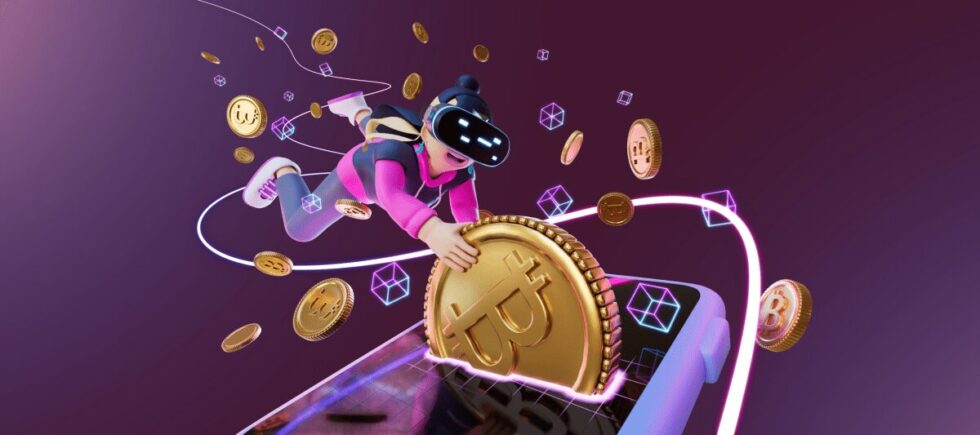What cryptocurrency inspired by “Squid Game” turned out to be a scam

The so-called Squid Game Token, launched in 2021 at the peak of Netflix’s hit series popularity, became one of the most notorious fraud cases in the cryptocurrency world. Thousands of investors worldwide poured money into the project, lured by the promise of extraordinary profits and a play-to-earn online game connected to the famous series. Within days, the token’s price skyrocketed by more than 30,000 percent — only to collapse suddenly when the developers disappeared with investors’ funds. It was a textbook case of a rug pull, a scheme where project creators build hype and then vanish with the liquidity. About $30–40 million were lost, as reported by G.business.
How the Squid Game Token was created
When Netflix’s “Squid Game” exploded in global popularity, opportunistic developers saw a chance to capitalize on the hype. They launched a token branded with the series’ imagery: masks, geometric symbols, and promotional slogans promising users access to a future online survival game. The narrative was seductive: players would buy tokens to enter digital tournaments and potentially earn more coins through competition.
Despite lacking a white paper, transparent team information, or any official license, the project gained massive traction. Social media platforms like Twitter and TikTok fueled the frenzy, and investors feared missing out on the “next big thing.” Many ignored basic red flags, convinced that the association with a Netflix phenomenon implied legitimacy.
Why it turned out to be a fraud
From the beginning, analysts pointed out warning signs: unclear project roadmap, anonymous developers, and most importantly, restrictions on selling the token. The smart contract embedded a so-called “anti-dumping” mechanism that allowed buying but prevented most holders from selling. This artificially drove the price up as demand grew.
Then, within minutes, the developers liquidated their holdings and drained the liquidity pool. The price collapsed to nearly zero. Early buyers saw their investments evaporate, and thousands were left holding worthless coins. The scheme revealed how easily hype and greed can override due diligence.
How a rug pull works
Typical steps of a rug pull:
- Developers create a flashy token, often tied to pop culture.
- Aggressive marketing campaigns launch on Telegram, Twitter, TikTok.
- Promises of extraordinary returns or unique utility attract buyers.
- Trading restrictions are coded to make it hard for investors to sell.
- The price surges due to fear of missing out.
- Developers cash out, leaving investors with worthless assets.
For newcomers, the explosive growth of such tokens appears attractive, but in reality, it is an engineered trap.
Reactions and consequences
Investors quickly turned to regulators and the press, demanding answers. Unfortunately, because the developers remained anonymous and operated across jurisdictions, recovering funds was nearly impossible. The scam highlighted the vulnerabilities of unregulated crypto markets.
Regulators reacted strongly. In Germany, BaFin issued warnings that unlicensed tokens marketed with familiar brands are particularly dangerous. The U.S. SEC added the case to its growing list of suspicious ICOs. Analysts agreed that stronger consumer protection is needed, especially as retail investors continue to be the main victims.
BaFin stated in an official notice: “The use of popular names or series is not proof of legitimacy. Investors must be cautious when confronted with projects offering unrealistic promises.”
CoinMarketCap placed a warning label on the token, flagging it as “extremely risky.” The platform commented: “The token rose more than 30,000 percent in just a few days — an almost certain indicator of manipulation and an eventual collapse.”
A blockchain researcher from the Blockchain Research Institute summarized: “Projects that appear overnight and guarantee fast profits are almost always shells. Squid Game Token illustrates the need for education and skepticism in crypto investing.”
Where to check official warnings
Before investing in any new cryptocurrency, experts recommend consulting trusted regulatory resources. These portals provide alerts on scams and suspicious projects:
- BaFin (Germany) — bafin.de → section Verbraucherwarnungen.
- SEC (U.S.) — sec.gov → list of unauthorized ICOs.
- ESMA (EU) — esma.europa.eu → reports and warnings on investment risks.
- CoinMarketCap Risk Alerts — coinmarketcap.com → flags “extremely risky” tokens.
- European Consumer Centre Germany — cec-zev.eu → consumer advice and complaint channels.
Using these resources should be the first step before committing money to any trending project.
Other examples of similar scams
| Token Name | Year | Investor Losses | Scam Pattern |
|---|---|---|---|
| Squid Game Token | 2021 | $30–40 million | Trading blocked, sudden developer exit |
| SaveTheKids Token | 2021 | $7 million | Promoted by influencers, quick collapse |
| Mando Token (Disney’s Mandalorian) | 2022 | $2 million | Fake game promises, team disappeared |
How to spot a fraudulent token
Investors can protect themselves by recognizing red flags:
- Anonymous or unverifiable developers.
- No licensing or regulatory oversight.
- Restrictions on selling tokens.
- Promises of guaranteed or extraordinary returns.
- Heavy reliance on hype through social media without technical backing.
Best practices for investors:
- Always read the project’s white paper and roadmap.
- Search for independent reviews and audits.
- Use established exchanges with compliance checks.
- Diversify investments instead of going all-in.
- Only invest money you can afford to lose.

The Squid Game Token scandal was more than a loss of money — it was a wake-up call for regulators and investors alike. It showed that even global pop culture phenomena can be hijacked to lure people into fraudulent schemes.
For regulators, it underlined the urgency of establishing stronger protections. For individual investors, it highlighted that due diligence is not optional but essential. The story demonstrates that in crypto, as in the Netflix series itself, not everyone who plays wins — and sometimes the cost of playing can be devastating.
Latest events in politics and global economy at Cryptonews – practical tips on how to act and invest. Read: How is cryptocurrency reshaping gaming: GameFi and Play-to-Earn in Germany in 2025